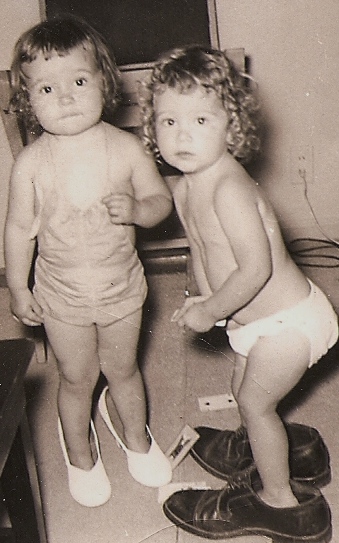
When Mark and Judy came to see me for couples therapy, Judy felt frustrated by her husband’s constant angry mood. They rarely talked anymore, and she felt that any time she brought up a stress, the conversation quickly became a quid pro quo—who had the hardest day? Mark felt low-level irritability and frustration about his life as a parent, provider, and worker. He didn’t feel in control over his life, but rather, at its mercy. ”When do you relax? What do you do?” I asked. He answered, “I veg.”
“How do you veg?” I asked.
“I turn my back on my wife and small kids and look at my laptop, surfing the web, reading this or that,” he replied. Turning his back was Mark’s signal to his family not to bother him, his way of carving some space for himself in his small house. But did it work?
“It works for moments, maybe; they leave me alone, at least.”
But in turning away, Mark was missing the opportunity to turn toward anything enriching. The web gives ample opportunity to veg, plenty of material to inspire reverie, but the end result is not Whitman’s loafing that invites the soul. It is diffuse and at the end of the evening, empty. A one-click purchase was often the only way my client felt like he actually got something for himself.
Spillover Stress: How it Damages a Relationship
And the next day would be just like the one before, full of stress and angry feelings. The psychological term “spillover” describes how stress can bleed into other aspects of life, especially in relationships. When someone is stressed because of the demands of daily life, they will carry that stress home, like a heavy briefcase they can’t put down. If someone is disconnected from himself or herself because the demands of life feel so heavy, they lose connection to their inner self, the soul.
Using Reverie and Daydreams as an Alternative to Surfing the Web
Returning to my client, I invited him to consider the benefits of reverie. To daydream, to muse with no clear focus, to allow the mind to wander with its spirals and twists—that can be a wonderful thing. “Loaf and invite the soul,” wrote Walt Whitman in Leaves of Grass. We need moments in the day with no one—not even ourselves—looking over our shoulders and monitoring our productivity. We need time where we can let ourselves slip into that pleasant, non-productive time with nothing to do but allowing thoughts, feelings, and images to freely enter and leave our minds.
So why not put the briefcase down, take the weight and the ache away? In Mark’s case, as we explored his feelings more deeply, he revealed guilt: Guilt about taking time for himself. Guilt about not being 100 percent there for his wife and kids. In therapy, we explored some reasons for this.
Going Deeper Within the Context of Couples Therapy
Through his boyhood and teenage years, Mark was what therapists call a “parentified child.” His mother suffered from a degenerative disease. His father worked to support the family on a meager budget, despite working two jobs. Mark had to care for his mother, feed her, and stay home while the other kids were out playing.
He got the message that taking anything for himself when his poor mother had nothing—no mobility, no joy, and no friends—was selfish. He carried this guilt into adulthood without realizing that now, as a parent himself, he was recreating his childhood pattern and taking care of everyone but himself.
While at first glance Mark and his wife Judy’s marriage looked like that of a typically bickering couple, it wasn’t that simple. Just teach them some communication skills, give some homework, and let them go on their merry way? NO. Unless the two understood Mark’s guilt and the reasons behind it, no real, lasting change could be made in their marriage. They would fall back into old patterns six months or less after completing couples therapy.
In Mark’s case, Judy listened quietly at first then interjected, “But I do give you space—I tell you go see your friends one evening after work, go the gym…” Mark had heard her say this countless times since their daughters were born. The conversation was an old one and never changed. When people have the same fight over and over, they become bitter and hopeless. Thoughts of divorce enter along with feelings of self-pity. “Another partner would not treat me this way,” each might think.
Stepping Out of Gridlock Takes Patience and Time
To step out of a gridlocked conflict such as this one takes patience and time. Couples counseling creates a space for partners to explore some of the not-so-obvious dynamics of their relationship with empathy, putting grudges aside long enough to really see your spouse in a different light. It provides an opportunity to see patterns on many levels: communication with your partner, your relationship to your parents, and how those layers interact with each other to create difficulties in loving.



 In the biblical Book of Revelations, the Four Horsemen of the Apocalypse signal the end of the world through conquest, war, famine, and death. The Four Horsemen that Dr. John Gottman’s research has identified as signaling the end of a relationship are criticism, contempt, defensiveness, and stonewalling—communication styles that threaten a marriage’s health and longevity.
In the biblical Book of Revelations, the Four Horsemen of the Apocalypse signal the end of the world through conquest, war, famine, and death. The Four Horsemen that Dr. John Gottman’s research has identified as signaling the end of a relationship are criticism, contempt, defensiveness, and stonewalling—communication styles that threaten a marriage’s health and longevity.

